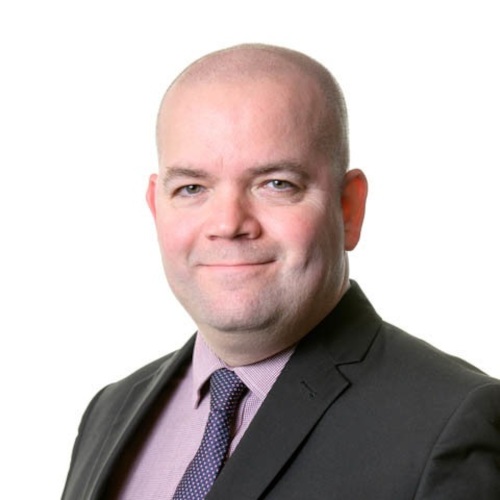Are you or your business facing investigation for an allegation of fraud? Proactive lawyers acting for individuals and businesses under investigation in relation to allegations of fraud or business crime.
At Olliers, we understand the stress and anxiety a criminal investigation can cause. An investigation may have a paralysing effect upon careers and businesses. Cases involving freezing orders and cash and asset seizure can be particularly problematic. Investigations can create a huge risk of reputational damage.
What sets Olliers apart is the proactive, front footed approach we adopt during a criminal investigation. We have an excellent reputation for representation before the criminal courts, but for us, the best possible outcome is when an investigation ends without our client being prosecuted.
The work we undertake for clients during this stage of the criminal process goes way beyond a police station attendance. Prior to and following an interview under caution, our team will do everything it can to minimise the likelihood of a client under investigation being charged with a criminal offence.
We are ranked as a Top Tier Crime and Fraud Firm by the Legal 500 2025 as well as Chambers Directory 2025. We are a Times Top 200 law firm. We are the current Manchester Legal Awards Crime Team of the Year, an award we have won seven times since 2011 in the space of just over 10 years.
We have a team of over 25 defence lawyers. Eight of our Partners are recommended Legal 500 lawyers, including Matt Corn, Gareth Martin, Toby Wilbraham and Richard Cornthwaite. Our Managing Director, Matthew Claughton is a recent Legal 500 Northern Powerhouse Criminal Lawyer of the Year.
Watch Matthew Claughton explain how pre-charge engagement could benefit you.
Pre-charge engagement is the process that takes place after someone has been interviewed at a police station under caution, and rather than them just sit tight and wait for an investigation to take place, it’s open for them to instruct lawyers who can then engage with the investigators and it’s the opportunity for the defence to go on the front foot rather than do nothing and allow the prosecution or the investigators to get on with their investigation, submit a file to the crown prosecution service and for a decision to be made. So, with pre-charge engagement the defence team can approach investigators and then suggest lines of inquiry that may be useful for the defence and for the purposes of the investigation and the whole process from a defence perspective is ensure that it’s much more two-sided and that the appropriate and right decisions are made at the end of the case. What flows from effective pre-charge engagement is representations against charge and that’s where the defence will make representations to investigators and ultimately to the crown prosecution service arguing that in accordance with what’s known as the charging standard there is not either a realistic prospect of a conviction or that a prosecution is not in the public interest.
All prosecutors, whether from the crown prosecution service or other prosecuting authorities, are bound by the code for crown prosecutors and specifically the charging standard, and under the charging standard there are two tests that have to be met. Firstly, there must be a realistic prospect to the conviction, in other words the case must be strong enough, and secondly, a prosecution must be in the public interest and if those two tests are met, then a prosecution can commence. It’s the role of the defence during the pre-charge stage of the case to persuade make representations to the crown prosecution service that there is not either a realistic prospect of a conviction or that a prosecution is not in the public interest.
There’s an awful lot that can be done to prevent a prosecution. Following an interview at a police station, it’s crucial that the defence look at everything that can be done to contradict or undermine what is being alleged during the police interview, and it’s at that point once that preparation has been done, that the defence would seek to become involved in pre-charge engagement with investigators and look at all the weaknesses in the prosecution case. Once that’s done, then effective representations against charge can be made arguing that the charging standard is not met, there’s not a realistic prospect to the conviction or that the prosecution is not in the public interest.
It could be messaging between parties, it could be social media activity, it could be material in the possession of third parties such as courts, councillors, hospital medical records, school records, it could be CCTV evidence, it could be witnesses, character witnesses or witnesses to an alleged incident. The list is not exhaustive, and the message at Olliers Solicitors is if you as a suspect, have got something that you want to draw to our attention then tell us about it and we’ll make the decision as to whether it can be used on your behalf.
Bail conditions can be varied quite informally by liaison with the investigating officer, that would require consent, and if that can’t be obtained it can be done by way of an application to the courts.
Investigations can vary in length depending on the allegation under investigation, the police force investigating it and the material that needs to be looked at by the police. Wherever possible, we will do whatever we can to accelerate the process, but our ultimate objective is a successful outcome for our client which means no further action is taken against them.
Instructing Olliers following representation by a duty solicitor at the police station is the easiest thing in the world. We frequently act for clients who’ve been represented by the duty solicitor and then come to us because they want a proactive approach to their investigation.
The public funding available for this area of work is very limited and it would not allow Olliers to undertake the work that we need to do for effective pre-charge representation.
Our pre-charge strategy
During any investigation, we will always look to making successful ‘representations against charge’.
From the outset we will look at early pre-charge engagement with investigators. We will do this irrespective of whether an investigation is being conducted by police, the Serious Fraud Office, HMRC, Insolvency Services, Health and Safety Investigators, Trading Standards teams or the FCA.
We will closely scrutinise whether the ‘Charging Standard’ contained within the 2018 ‘Code for Crown Prosecutors’ is met. Wherever possible we will argue that there is not a ‘realistic prospect of a conviction’ or that a prosecution is not in the ‘public interest’ and that no further action should be taken against our client.
How ‘charging decisions’ are made.
The Code for Crown Prosecutors contains the ‘Charging Standard’ and the Director of Public Prosecution’s Guidance on Charging 2020 sets out the requirements of investigators when submitting material to prosecutors. The provisions relate to all prosecutions not just those involving the police and the Crown Prosecution Service.
A prosecution should only take place if, in accordance with the Charging Standard there is a ‘realistic prospect of a conviction’ and, a prosecution is in the ‘public interest’
The defence lawyers at Olliers have a comprehensive knowledge of investigation and charging procedure.
What can Olliers do to prevent a prosecution?
Pre-charge engagement followed by effective representations against charge is often the most effective means of preventing a prosecution. ‘Pre-charge engagement’ refers to any voluntary engagement between parties to an investigation after the first interview under caution.
It is an opportunity for a client to comment on further lines of enquiry. With an allegation of fraud, this may involve drawing attention to financial records, bank statements, accounts, material at Companies House. It may involve digital material, whether that be in the form of email or messaging and it may be appropriate to suggest examination of computers. Social media may be relevant, and sometimes it may shed light on why a complaint has been made. Witnesses capable of supporting the defence might be identifiable and sometimes expert or forensic evidence may be relevant and be capable of being agreed. In other cases, medical evidence is relevant, particularly in cases involving ill-health.
We will always look to provide the police or other investigators with sufficient material so as to prevent our client being charged.
Specialist fraud investigations solicitors (London & Manchester)
If you are facing an allegation of fraud and are in need of a specialist lawyer, please contact Matthew Claughton at matthewclaughton@olliers.com or call 0161 827 7010 immediately.




